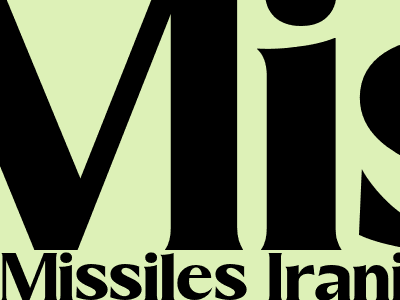Missiles Iraniens: A Comprehensive Guide
The Evolution of Iran's Missile Program
Iran's missile program has a long and complex history, dating back to the 1980s. Initially, Iran relied on imported missiles from countries like China and North Korea. However, in the 1990s, Iran began to develop its own indigenous missile production capabilities. Today, Iran possesses a diverse array of missiles, including short-range ballistic missiles (SRBMs), medium-range ballistic missiles (MRBMs), and intercontinental ballistic missiles (ICBMs).
Iran's missile program is seen as a key component of its defense strategy. Missiles provide Iran with the ability to strike targets at long distances, both within the region and beyond. Iran has also used its missiles to support its allies in conflicts in the Middle East, such as the Houthi rebels in Yemen.
The Concerns of the International Community
Iran's missile program has raised concerns among the international community. Some countries, such as the United States and Israel, believe that Iran's missiles pose a threat to regional stability and security.
The United States has long been critical of Iran's missile program. In 2018, the Trump administration withdrew the United States from the Joint Comprehensive Plan of Action (JCPOA), a nuclear deal that had been negotiated with Iran. The Trump administration also imposed new sanctions on Iran's missile program.
Israel is another country that has expressed concerns about Iran's missile program. Israel sees Iran as its primary threat, and it believes that Iran's missiles could be used to target Israel in a future conflict.
The Future of Iran's Missile Program
The future of Iran's missile program is uncertain. Iran has indicated that it will continue to develop its missile capabilities, despite international pressure. The United States and its allies are likely to continue to press Iran to limit its missile program.
The future of Iran's missile program will depend on a number of factors, including the outcome of negotiations between Iran and the United States, the level of international pressure on Iran, and the overall security situation in the Middle East.
Conclusion
Iran's missile program is a complex and controversial issue. Iran sees its missile program as a key component of its defense strategy, while the international community has concerns about the potential threat posed by Iran's missiles.
The future of Iran's missile program is uncertain. The United States and its allies are likely to continue to press Iran to limit its missile program, while Iran has indicated that it will continue to develop its missile capabilities.

تعليقات